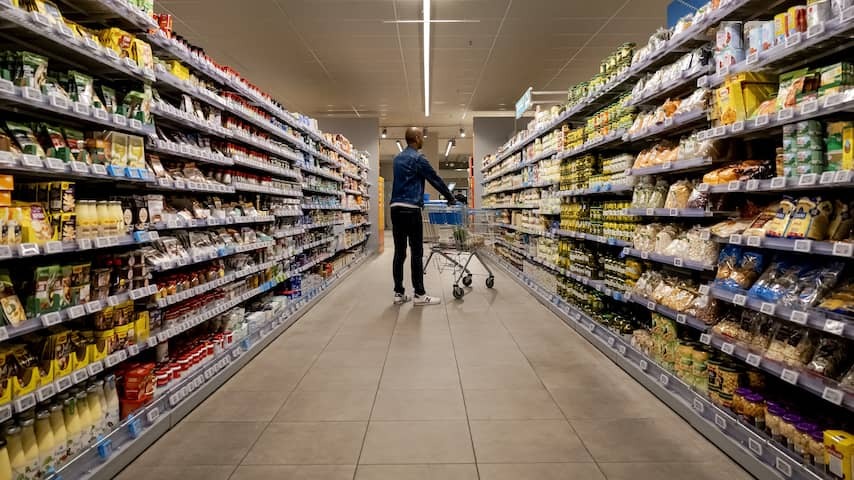
Going from supermarket to supermarket to get the cheapest groceries possible? NU.nl asked experts if that makes sense and how you can potentially adjust your buying behavior.
Food, drinks, and tobacco were over 7 percent more expensive in May than last year. This makes the Dutch inflation relatively high compared to other Euro countries. But it helps that wages are rising faster at the moment, says Jan-Paul van de Kerke, economist at ABN AMRO, to NU.nl.
In theory, you should be able to fill your shopping basket a bit more easily. Yet, in practice, it doesn’t work that way, Van de Kerke sees.
Uncertainty about what prices will do can bring uncertainty. That is on top of the uncertainty that many people already face: think of the fall of the cabinet, the trade war of the American president Donald Trump, and the call to buy a disaster relief package.
That this uncertainty affects our buying behavior is not surprising according to consumer psychologist Patrick Wessels. That is because everything you see happening around you has an influence. How you then deal with it depends on your financial situation, according to him.
‘Be aware of pitfalls and excuses’
Maybe you go bargain hunting or carefully sift through the advertising brochures. Wessels sees that we are good at always finding a reason why you should buy that one more expensive bag of chips at that particular moment.
“If you really can’t miss the money and want to be more sharp about what you put in your basket, it is therefore good to be aware of your own buying behavior. The pitfalls that are there and the excuses you come up with,” says Wessels.
Budget coach Carolien Vos advises against overdoing it with keeping track of offers. “Many people think that they are cheaper with that, but time is also money. So don’t spend the whole day collecting the cheapest groceries.”
Don’t go to the supermarket every day
Vos therefore does not recommend going to different stores. “It doesn’t make a big difference per supermarket.” According to her, it is better to go once a week and prepare a good plan and shopping list in advance. “The more often you come to the store, the more you are tempted to buy things you don’t really need.”
Her advice is therefore to buy groceries for about five days at once. That way you have room to be flexible and you can use a day to use up any leftovers. “And make sure you always have something in your freezer.”
The expectation is that inflation will decrease slightly, but prices will remain high for a while. By examining how you work in the supermarket, that can therefore make a difference in your wallet. Van de Kerke also states that many people are better off compared to last year after the income increase and the increase in purchasing power. Yet it is not easy to adjust your behavior accordingly.
But if you look at how people make choices about money, we know that people need more pluses to make up for a minus. Only a higher salary is not enough. “And you are exposed to the high prices of, for example, butter or milk much more often than your salary,” says Van de Kerke. “You only see that increase when you look at your payslip, at most once a month.”